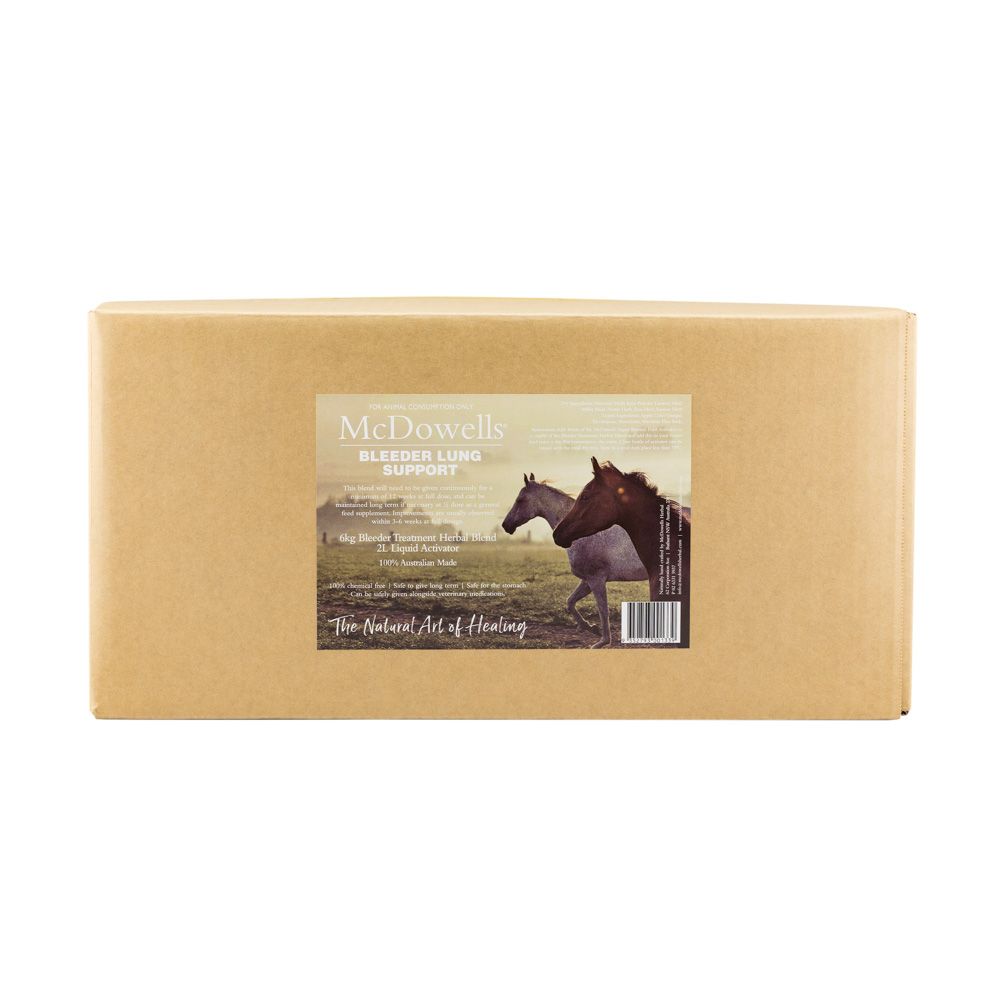Exercise-Induced Pulmonary Hemorrhage (EIPH) or 'Bleeders' as they are commonly known, is a disorder mostly affecting racehorses. It's been recongnised for over 300 years - a horse was called a “bleeder” when it shed blood from the nose after a race.

Horses lungs are very large and powerful and they are driven by the gait where a galloper particularly as he draws his hindquarters forward will pump the air out very forcefully and will draw it in just as efficiently when he stretches out. Of course as he hits the ground each time the whole structure of the animal suffers a significant jarring. Added to this is the effect of turbulence, where a large mass of air being drawn in and then blown out so forcefully creates a terrific amount of turbulence within the lungs and can produce localised areas of very high wind speeds like having a hurricane inside there. All of this is happening in an area of the body where the alveoli (the little blood filled sacs in the lungs) must have a very fragile lining over them in order to allow oxygen to be drawn in directly through the lining (or the skin) covering them.
What is amazing when you look at it like this is that the designer managed to make it work at all. Imagine being asked to design a bubble bath, which will stand up to hurricane force winds.
Pacers, since their gait is not a natural one for the speeds which they are asked perform at, suffer more since they do not have the benefit of the natural pumping action of the gallop so they have shorter sharper breaths and more jarring to the lungs in their action.
Bleeding then is all tied up with the gait, the structural efficiency of the lungs themselves, the fitness, the amount of scarring from previous bleeds and the strength of the lining of the alveoli.
There are those who say that all competition horses bleed from the lungs at times and I think that this is probably true. Nowadays I find the odd trainer who is so paranoid about this possibility that they will 'scope' their charges (that is have their vet look into the lungs with a laparoscope) after almost every run. These trainers seem to have their worst fears confirmed and their vets then have a good steady income continuing this practice.
I am not so sure how good it is for the horse to have this piece of equipment poking around in their lung cavity on a regular basis. However, if it is true that all horses can bleed, then potentially all racers and pacers can be disqualified from any further competition if they are picked up with blood in the nostrils by the Stewards more than twice, or whatever the ruling is in each country.
My bleeder mix includes the herbs:- Hawthorn, Borage Herb, Kelp Powder, Nettle Herb, Rue Herb, Yarrow Herb and Yellow Dock.
As a maintenance program for all racers and pacers they should have access to Rue and Hawthorn either in their feed or their hedgerow and they should be fed some Buckwheat (which is the commercial source of Rutin) in their diet. I provide to many of my pacing clients especially a complex mix containing most of the above herbs which both protects their animals against bleeds and also improves the efficiency of their lungs allowing them to 'go faster'.
I also believe there are great business opportunities out there for experienced handlers to rehabilitate Bleeders by combining such treatments with training and exercise programs including perhaps gait modification and swimming for example. Such a person who specialised in this sort of rehabilitation would very quickly become expert in this field and could make a wonderful contribution to the industry by restoring valuable stock, to the humanity of the whole business and of course to their own livelihood.
The difficulty faced by the industry is really the problem of distinguishing between a simple bleed, which can show in the nostril after a race and has very little significance and a severe bleed, which for all the correct and humane reasons should be cause for suspension. I have no answers to this dilemma apart from the preventative measures above but I am sure that multiple scoping does more harm than good.
Other advice can be given by email or telephone and mail order treatment programs are available by mail order, it can be dispatched the same day you order, and it can be safely used during normal training and racing.


